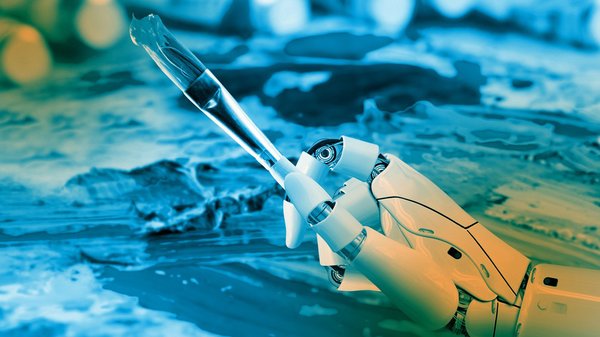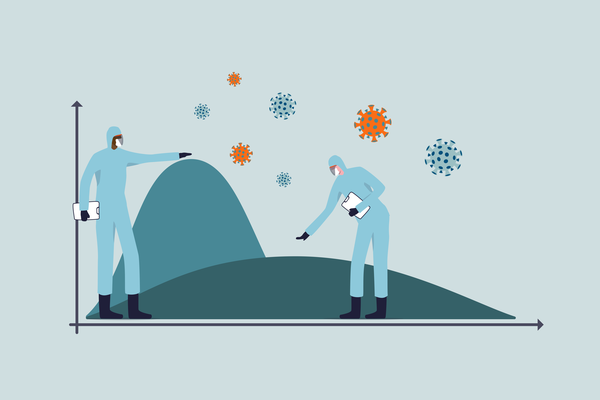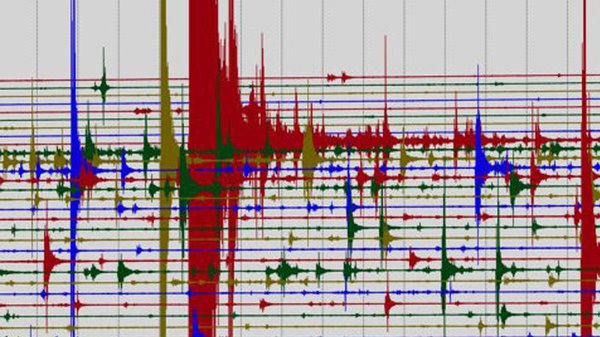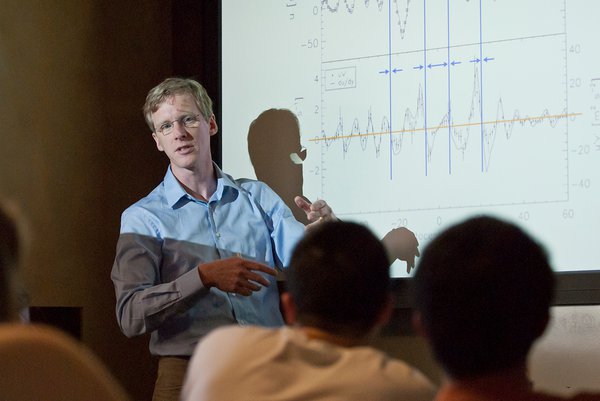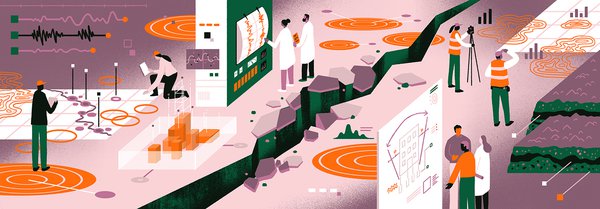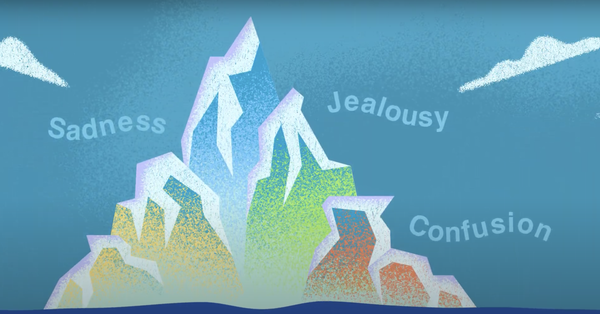#caltechscienceexchange ผลการค้นหา
How Do Congressional Districts Work? #CaltechScienceExchange #CaltechVotingAndElections #CaltechElectionIntegrity @Caltech | @CaltechLCSSP scienceexchange.caltech.edu/topics/voting-…
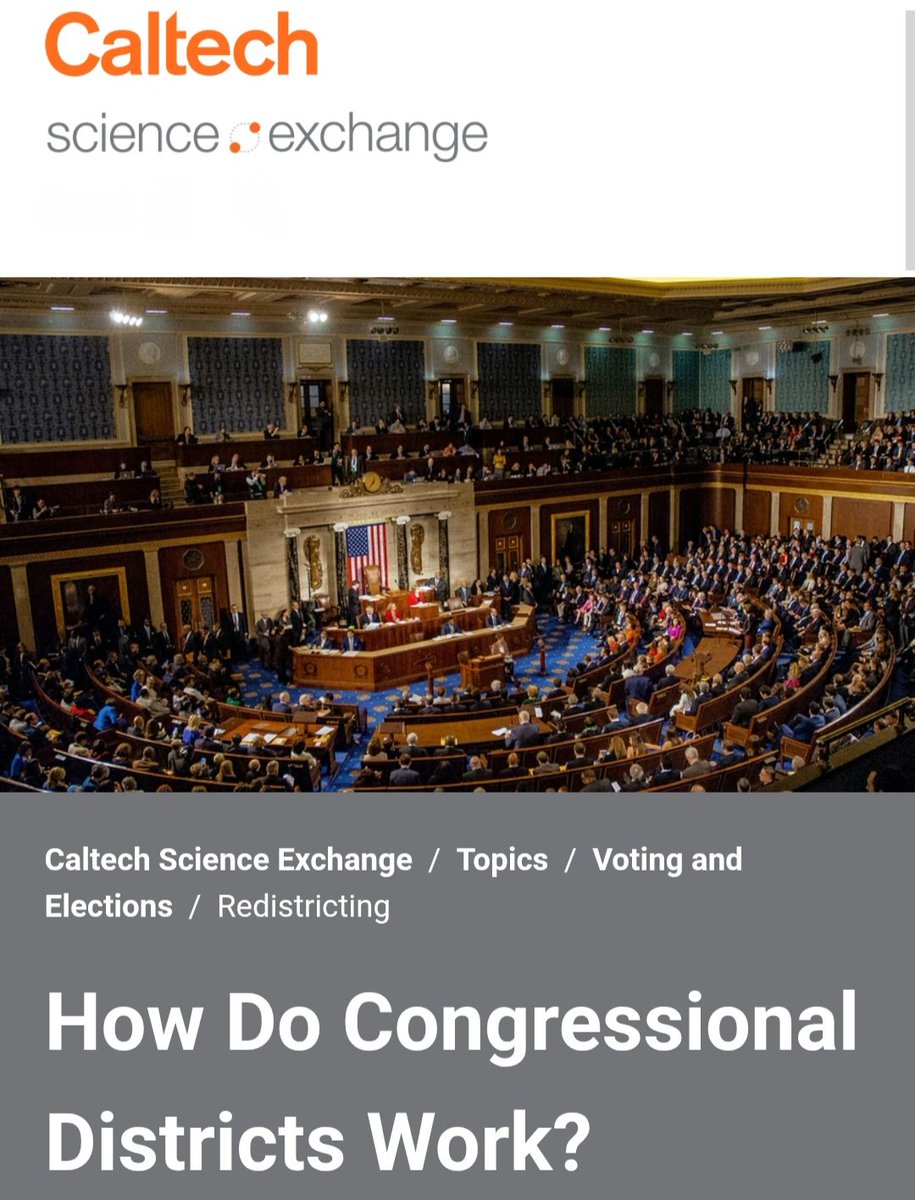
Today’s earthquake in Southern California reminds us of of our planet's dynamic nature. Explore the causes of these seismic events with insights from Caltech experts. #CaltechScienceExchange scienceexchange.caltech.edu/topics/earthqu…

Neuroscience unlocked! 🔐 Explore the newest addition to the #CaltechScienceExchange: Explore how breakthroughs in technology are advancing brain research and shaping the future of neuroscience. Start exploring: scienceexchange.caltech.edu/topics/neurosc…
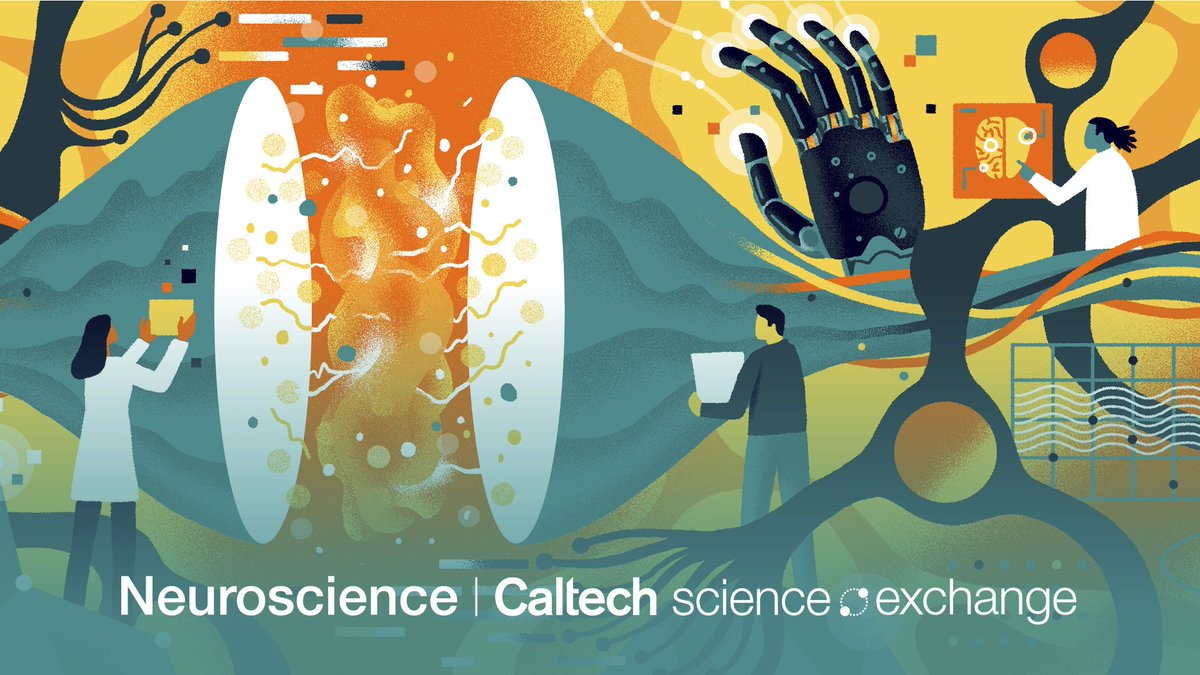
Earth is quickly losing its biodiversity, but AI can help! Continue the celebration of #EarthMonth this Mon. 4/24 with @pietroperona and @suzstathatos as they discuss new tools for monitoring species 🦅 🐟 caltech.zoom.us/webinar/regist… #CaltechScienceExchange

What causes neurodegenerative diseases like Alzheimer’s or Parkinson’s? And how are researchers developing treatments to stop them? Learn more from Caltech’s Viviana Gradinaru on the #CaltechScienceExchange. scienceexchange.caltech.edu/topics/neurosc…
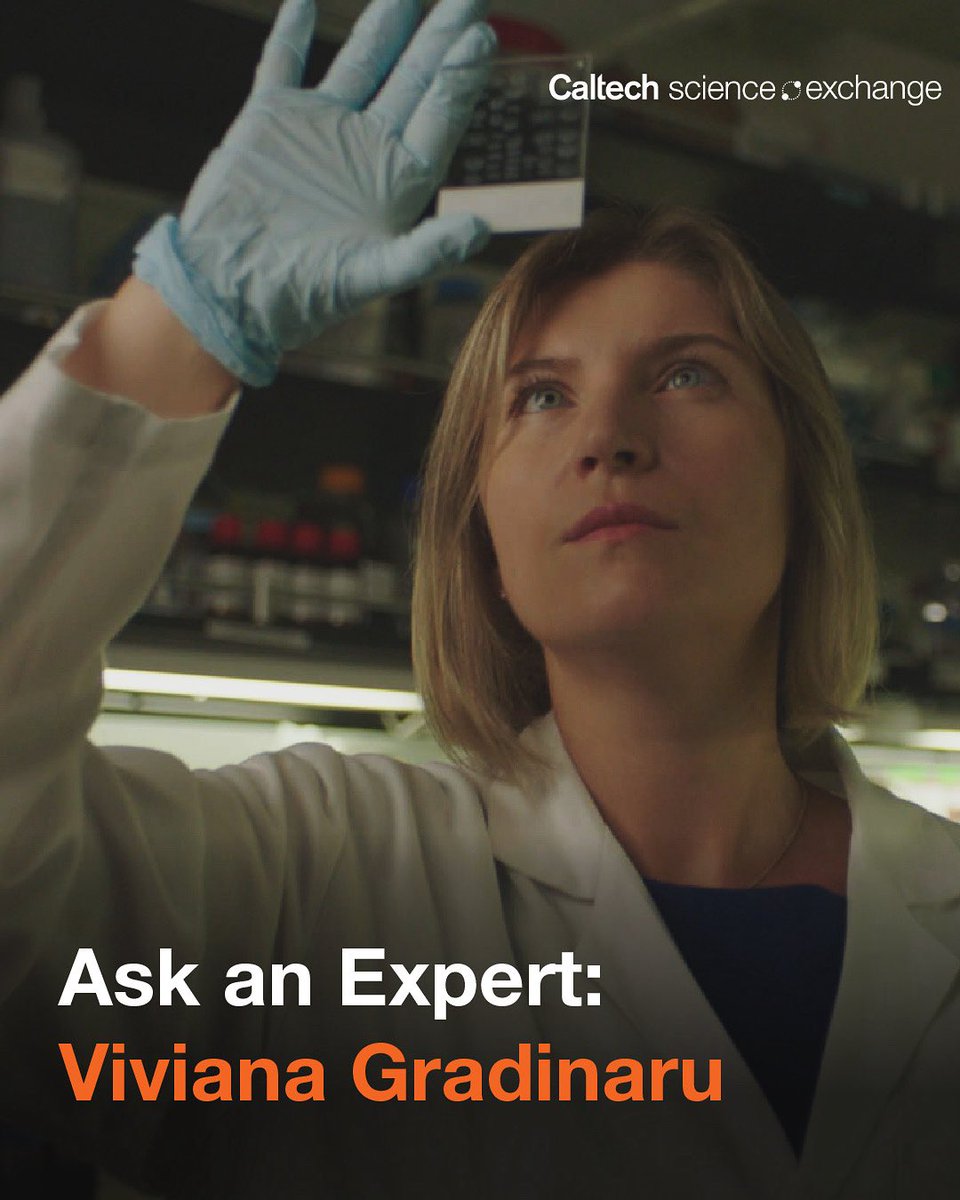
Artificial intelligence was inspired by the human brain. 🧠🤖 Now, AI is helping us unlock the secrets of the brain. Learn how artificial intelligence is advancing neuroscience on the #CaltechScienceExchange here: scienceexchange.caltech.edu/topics/neurosc…

Celebrate #WorldQuantumDay tomorrow (Fri., 4/14), by joining Caltech professor and @awscloud director of quantum applications @fgslbrandao as he discusses efforts to build quantum computers: caltech.zoom.us/webinar/regist… #CaltechScienceExchange
Did you get an alert before today’s earthquake? That’s early warning tech in action. Caltech researchers have helped shape the science behind these systems designed to give you a heads-up to take action. #CaltechScienceExchange scienceexchange.caltech.edu/topics/earthqu…
If you're still wondering "What exactly IS #generativeAI?" or "How are ChatGPT, Amazon Q, or Bard any different from other forms of AI?" then check out this explainer from the #CaltechScienceExchange: scienceexchange.caltech.edu/topics/artific…
This week, we experienced what was likely the hottest day on record. How much is human-caused climate change to blame? Learn more about extreme-event attribution on the #CaltechScienceExchange: scienceexchange.caltech.edu/topics/sustain…
A new case of the plague has been located in El Dorado county, but should you be concerned? How do scientists predict the spread of a virus? Learn how disease modeling works and why it matters on the #CaltechScienceExchange. scienceexchange.caltech.edu/topics/covid-1…
How Can AI Propel Exploration of the Cosmos, the Oceans, and the Earth? Perspectives from professors Katie Bouman, Matthew Graham, John Dabiri, and Zachary Ross via #CaltechScienceExchange scienceexchange.caltech.edu/topics/artific…
On #InternationalCleanAirDay, check out how scientists have unraveled the mysteries of smog formation and paved the way for informed policy decisions (via #CaltechScienceExchange), which led to measurable air quality improvements. scienceexchange.caltech.edu/topics/sustain…
scienceexchange.caltech.edu
What Causes Smog?
Smog is mainly made of ground-level ozone and particulate matter. Here, Caltech scientists explain the smog formation process.
Did you know your brain has 86 billion neurons working together to help you think, feel, move, breathe, remember, and more. Dive into this #CaltechScienceExchange explainer on how the human brain functions at a cellular level. scienceexchange.caltech.edu/topics/neurosc…
It seems like extreme weather events are becoming more frequent—but how much of that is due to climate change? Visit the #CaltechScienceExchange to learn how extreme-event attribution helps scientists measure the influence of human-caused climate change. scienceexchange.caltech.edu/topics/sustain…
Can machines one day become more intelligent than humans? Key to this comparison is a clear understanding of "intelligence." Learn more on the #CaltechScienceExchange: scienceexchange.caltech.edu/topics/artific…
On the day of #ShakeOut, the world's large earthquake drill, we encourage you to brush up on your knowledge of earthquakes with information from the #CaltechScienceExchange! scienceexchange.caltech.edu/topics/earthqu…
Learn about the basic concepts underlying the field of #quantum science, including superposition, entanglement, and the uncertainty principle with articles backed by @Caltech expertise via the #CaltechScienceExchange: scienceexchange.caltech.edu/topics/quantum… #WorldQuantumDay
Want to increase your ability to engage in accurate technobabble? Check out #CaltechScienceExchange for an entire section of articles and multimedia pieces exploring and explaining #quantum science and technology.
How does the brain produce emotions like joy or sadness? 🌊 Conscious feelings are just the tip of the iceberg, according to researchers. Learn about the neuroscience behind emotion on the #CaltechScienceExchange here: scienceexchange.caltech.edu/topics/neurosc…
How Do Congressional Districts Work? #CaltechScienceExchange #CaltechVotingAndElections #CaltechElectionIntegrity @Caltech | @CaltechLCSSP scienceexchange.caltech.edu/topics/voting-…

A new case of the plague has been located in El Dorado county, but should you be concerned? How do scientists predict the spread of a virus? Learn how disease modeling works and why it matters on the #CaltechScienceExchange. scienceexchange.caltech.edu/topics/covid-1…
What causes neurodegenerative diseases like Alzheimer’s or Parkinson’s? And how are researchers developing treatments to stop them? Learn more from Caltech’s Viviana Gradinaru on the #CaltechScienceExchange. scienceexchange.caltech.edu/topics/neurosc…

Artificial intelligence was inspired by the human brain. 🧠🤖 Now, AI is helping us unlock the secrets of the brain. Learn how artificial intelligence is advancing neuroscience on the #CaltechScienceExchange here: scienceexchange.caltech.edu/topics/neurosc…

Did you get an alert before today’s earthquake? That’s early warning tech in action. Caltech researchers have helped shape the science behind these systems designed to give you a heads-up to take action. #CaltechScienceExchange scienceexchange.caltech.edu/topics/earthqu…
How does the brain produce emotions like joy or sadness? 🌊 Conscious feelings are just the tip of the iceberg, according to researchers. Learn about the neuroscience behind emotion on the #CaltechScienceExchange here: scienceexchange.caltech.edu/topics/neurosc…
Did you know your brain has 86 billion neurons working together to help you think, feel, move, breathe, remember, and more. Dive into this #CaltechScienceExchange explainer on how the human brain functions at a cellular level. scienceexchange.caltech.edu/topics/neurosc…
Neuroscience unlocked! 🔐 Explore the newest addition to the #CaltechScienceExchange: Explore how breakthroughs in technology are advancing brain research and shaping the future of neuroscience. Start exploring: scienceexchange.caltech.edu/topics/neurosc…

On the day of #ShakeOut, the world's large earthquake drill, we encourage you to brush up on your knowledge of earthquakes with information from the #CaltechScienceExchange! scienceexchange.caltech.edu/topics/earthqu…
It seems like extreme weather events are becoming more frequent—but how much of that is due to climate change? Visit the #CaltechScienceExchange to learn how extreme-event attribution helps scientists measure the influence of human-caused climate change. scienceexchange.caltech.edu/topics/sustain…
Today’s earthquake in Southern California reminds us of of our planet's dynamic nature. Explore the causes of these seismic events with insights from Caltech experts. #CaltechScienceExchange scienceexchange.caltech.edu/topics/earthqu…

How Can AI Propel Exploration of the Cosmos, the Oceans, and the Earth? Perspectives from professors Katie Bouman, Matthew Graham, John Dabiri, and Zachary Ross via #CaltechScienceExchange scienceexchange.caltech.edu/topics/artific…
Can machines one day become more intelligent than humans? Key to this comparison is a clear understanding of "intelligence." Learn more on the #CaltechScienceExchange: scienceexchange.caltech.edu/topics/artific…
If you're still wondering "What exactly IS #generativeAI?" or "How are ChatGPT, Amazon Q, or Bard any different from other forms of AI?" then check out this explainer from the #CaltechScienceExchange: scienceexchange.caltech.edu/topics/artific…
This follows nicely from some of the sentiment expressed by @Caltech’s AI profs at the recent #CaltechScienceExchange event. Plus it’s always fun to hear from @SergeBelongie
"I am not worried that AI will lead to doomsday. My worries are far more boring and sad: That people become too lazy and let machines take over even the simplest tasks" says P1 director @SergeBelongie in a recent TV2 article. Read the full article here👉 nyheder-tv2-dk.translate.goog/samfund/2023-1…

Want to increase your ability to engage in accurate technobabble? Check out #CaltechScienceExchange for an entire section of articles and multimedia pieces exploring and explaining #quantum science and technology.
On #InternationalCleanAirDay, check out how scientists have unraveled the mysteries of smog formation and paved the way for informed policy decisions (via #CaltechScienceExchange), which led to measurable air quality improvements. scienceexchange.caltech.edu/topics/sustain…
scienceexchange.caltech.edu
What Causes Smog?
Smog is mainly made of ground-level ozone and particulate matter. Here, Caltech scientists explain the smog formation process.
This week, we experienced what was likely the hottest day on record. How much is human-caused climate change to blame? Learn more about extreme-event attribution on the #CaltechScienceExchange: scienceexchange.caltech.edu/topics/sustain…
Earth is quickly losing its biodiversity, but AI can help! Continue the celebration of #EarthMonth this Mon. 4/24 with @pietroperona and @suzstathatos as they discuss new tools for monitoring species 🦅 🐟 caltech.zoom.us/webinar/regist… #CaltechScienceExchange

Learn about the basic concepts underlying the field of #quantum science, including superposition, entanglement, and the uncertainty principle with articles backed by @Caltech expertise via the #CaltechScienceExchange: scienceexchange.caltech.edu/topics/quantum… #WorldQuantumDay
Join us for a Conversation on the Quantum World hosted by the #CaltechScienceExchange. @preskill will discuss quantum computers, the efforts to build them, and the unpredictable future of #QuantumComputing applications. scienceexchange.caltech.edu/connect/conver…

The first potential coronavirus #vaccine to be tested in humans saw positive results from early clinical trials. Learn how vaccines are developed and why they typically take so long to create, test and manufacture. #CaltechScienceExchange ow.ly/ZAOr50zL9GI

Yesterday was a big day for COVID-19 vaccines: Two advanced trials are now underway in the U.S. Learn what happens in the late stages of a #vaccine trial on the #CaltechScienceExchange ow.ly/42Kk50AKCNH #coronavirus
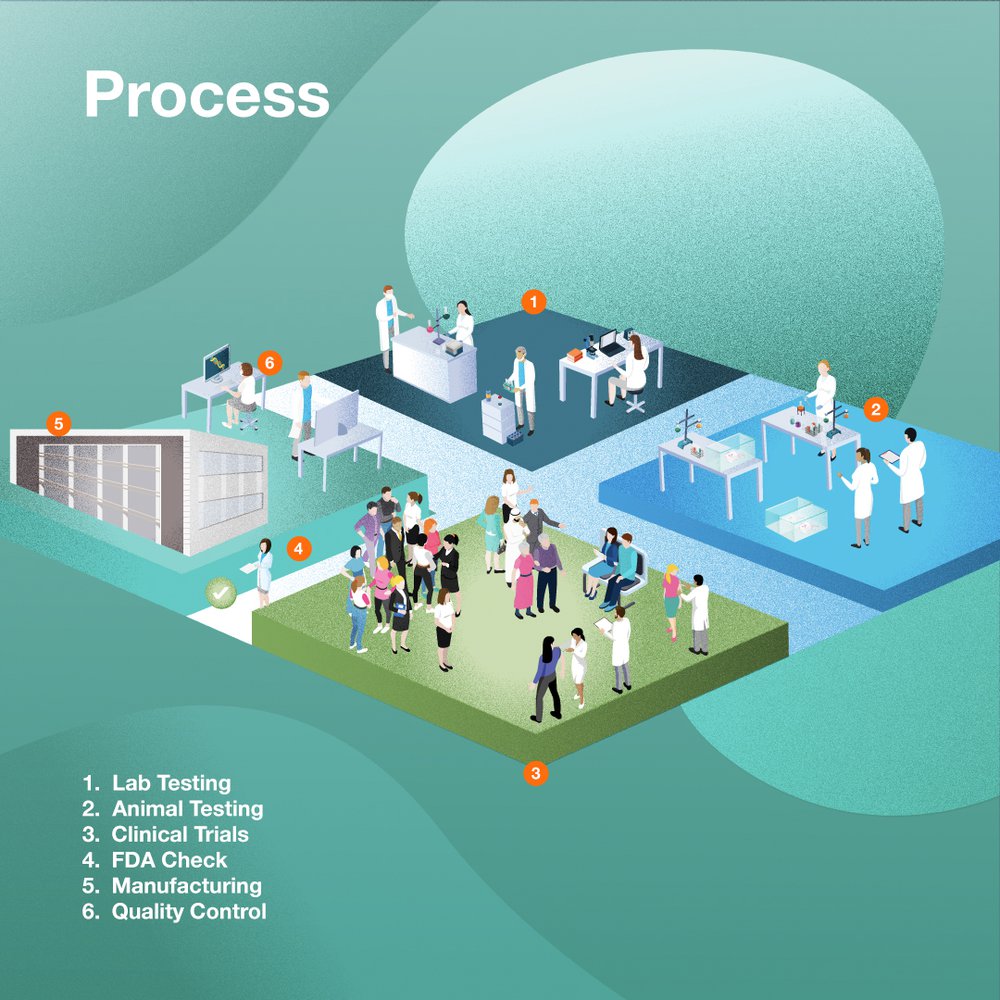
Learn how vaccines are developed and why they typically take so long to create, test and manufacture. #CaltechScienceExchange ow.ly/RrdV50AcSXU
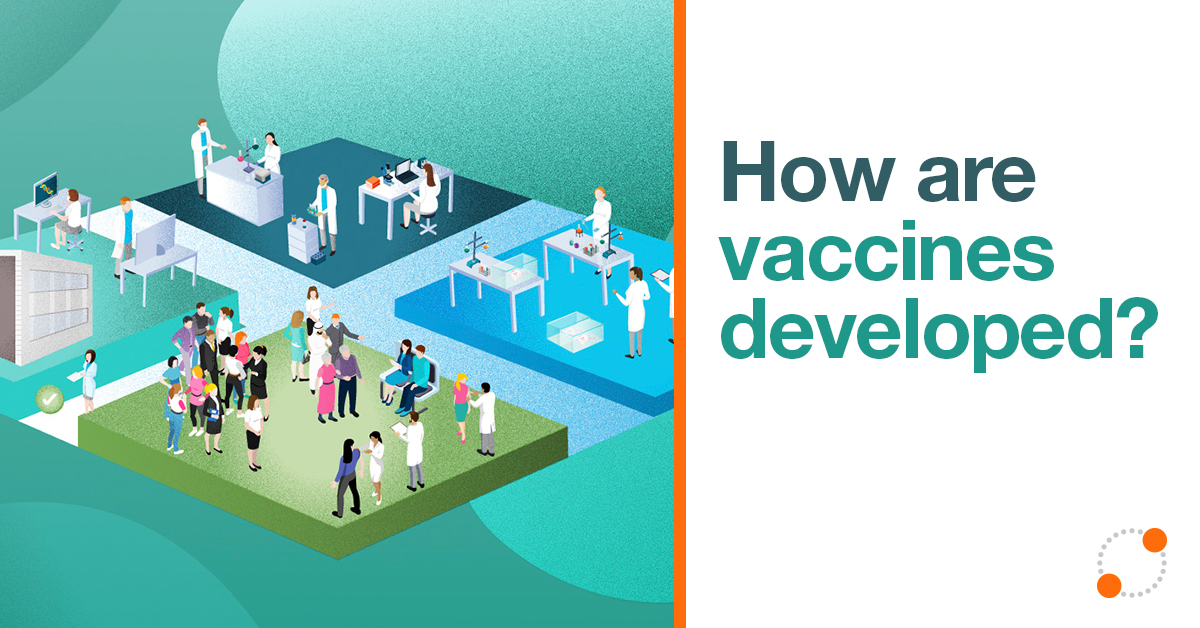
What are #vaccines made out of, and why do they take so long to develop? Understand this question and more with clear, concise answers from the #CaltechScienceExchange. ow.ly/NwZI50zL9bY

What's the deal with #COVID19 mutations and variants? Pamela Bjorkman (@bjorkmanlab) recently addressed this in a conversation on coronavirus #vaccines: ow.ly/mdCw50DK3a8 #CaltechScienceExchange

Visit the @Caltech Science Exchange, a new website that delivers trustworthy answers to timely scientific questions. First up: COVID-19 and other viral threats. Brush up on the basics, dive deeper, and ask your own questions. scienceexchange.caltech.edu/?utm_source=ca… #CaltechScienceExchange

What are viruses made of? Scientists have identified more than 200 virus species with the potential to infect humans. #CaltechScienceExchange ow.ly/iKeC50zLM6C

Today’s earthquake in Southern California reminds us of of our planet's dynamic nature. Explore the causes of these seismic events with insights from Caltech experts. #CaltechScienceExchange scienceexchange.caltech.edu/topics/earthqu…

Increase your political power--vote in your local elections! According to @dl_wiggins, it's at the state and local level that legislation has the most direct impact on people's lives. Read more on voting and elections on the #CaltechScienceExchange: ow.ly/2poi50Bu5XY

Earth is quickly losing its biodiversity, but AI can help! Continue the celebration of #EarthMonth this Mon. 4/24 with @pietroperona and @suzstathatos as they discuss new tools for monitoring species 🦅 🐟 caltech.zoom.us/webinar/regist… #CaltechScienceExchange

Concerned about making sure your #vote will count? One way to mitigate risk is to vote early, says Caltech's @rmichaelalvarez. Read his full answer to the question: "What can I do to make sure my vote counts on Election Day?" via #CaltechScienceExchange ow.ly/6zOM50Bu4u8

📅 RSVP today for tomorrow's Conversations on the #Quantum World event ft @RanaXAdhikari and Kathryn Zurek discussing the mystery of quantum gravity. 👉caltech.zoom.us/webinar/regist… #CaltechScienceExchange
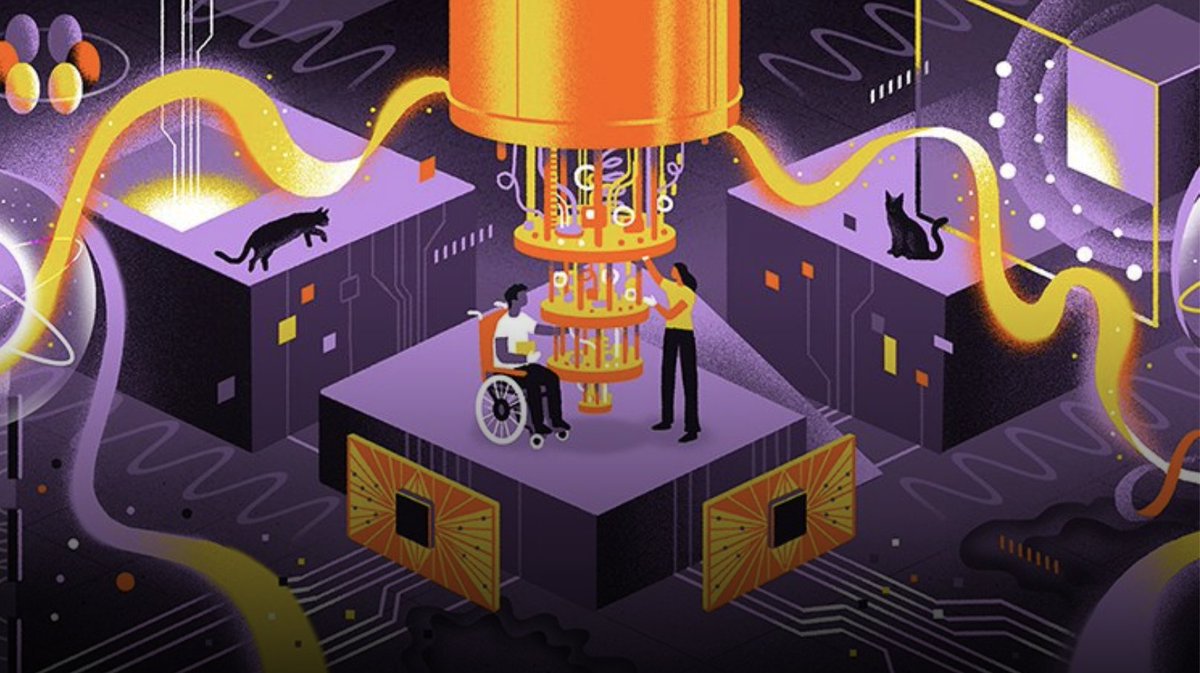
With so many political polls making news lately, it may be worth refreshing your knowledge on how polls work. Check out this comic-style explainer from the #CaltechScienceExchange



Public health officials are updating coronavirus forecasts as communities begin to reopen and as new data becomes available. Where do those forecasts come from? Visit the #CaltechScienceExchange to learn how disease modeling works. ow.ly/sRBD50AeSYe
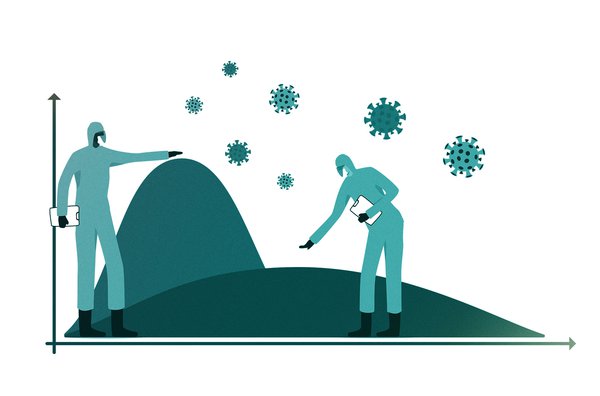
Find out how antibodies from other sources can be used to provide short-term protection against infection, read about it on the #CaltechScienceExchange. ow.ly/i7jc50ADd8v

Do you know your antigen tests from your antibody tests? Improve your understanding of #coronavirus testing with clear, concise answers on the #CaltechScienceExchange. ow.ly/HLLf50AaHqQ

#FridayFact: The main components of photochemical smog—that hazy air pollution that can blanket Los Angeles and other urban areas—are ground-level ozone and particulate matter. Learn more about the science of smog on the #CaltechScienceExchange: scienceexchange.caltech.edu/topics/sustain…

Neuroscience unlocked! 🔐 Explore the newest addition to the #CaltechScienceExchange: Explore how breakthroughs in technology are advancing brain research and shaping the future of neuroscience. Start exploring: scienceexchange.caltech.edu/topics/neurosc…

The electoral system is an integral part of our nation’s history and future. This #IndependenceDay, learn more about the science of voting and elections with the #CaltechScienceExchange. scienceexchange.caltech.edu/topics/voting-…

Something went wrong.
Something went wrong.
United States Trends
- 1. Knicks 13.2K posts
- 2. Landry Shamet 1,290 posts
- 3. #Survivor49 3,898 posts
- 4. Brandon Williams 1,022 posts
- 5. #AEWDynamite 21.6K posts
- 6. #CMAawards 5,494 posts
- 7. Derik Queen 4,167 posts
- 8. Vooch 1,143 posts
- 9. Vucevic 6,035 posts
- 10. Labaron Philon 1,102 posts
- 11. #mnwild N/A
- 12. #cma2025 N/A
- 13. FEMA 66.6K posts
- 14. Blazers 4,130 posts
- 15. NO CAP 14.3K posts
- 16. Coby White 1,076 posts
- 17. Naji Marshall N/A
- 18. Josh Hart 2,776 posts
- 19. FREE HAT 1,625 posts
- 20. Okada 10.7K posts




